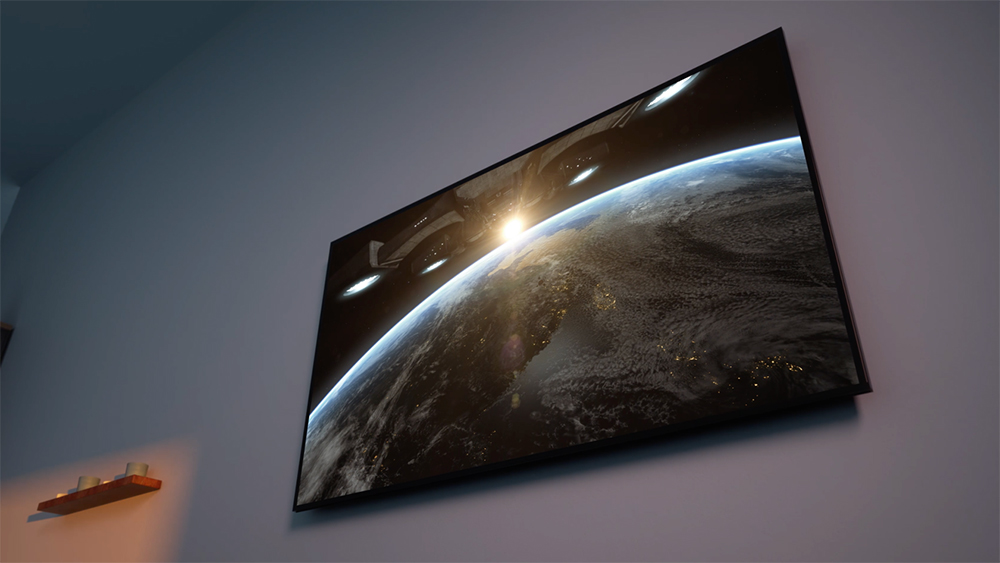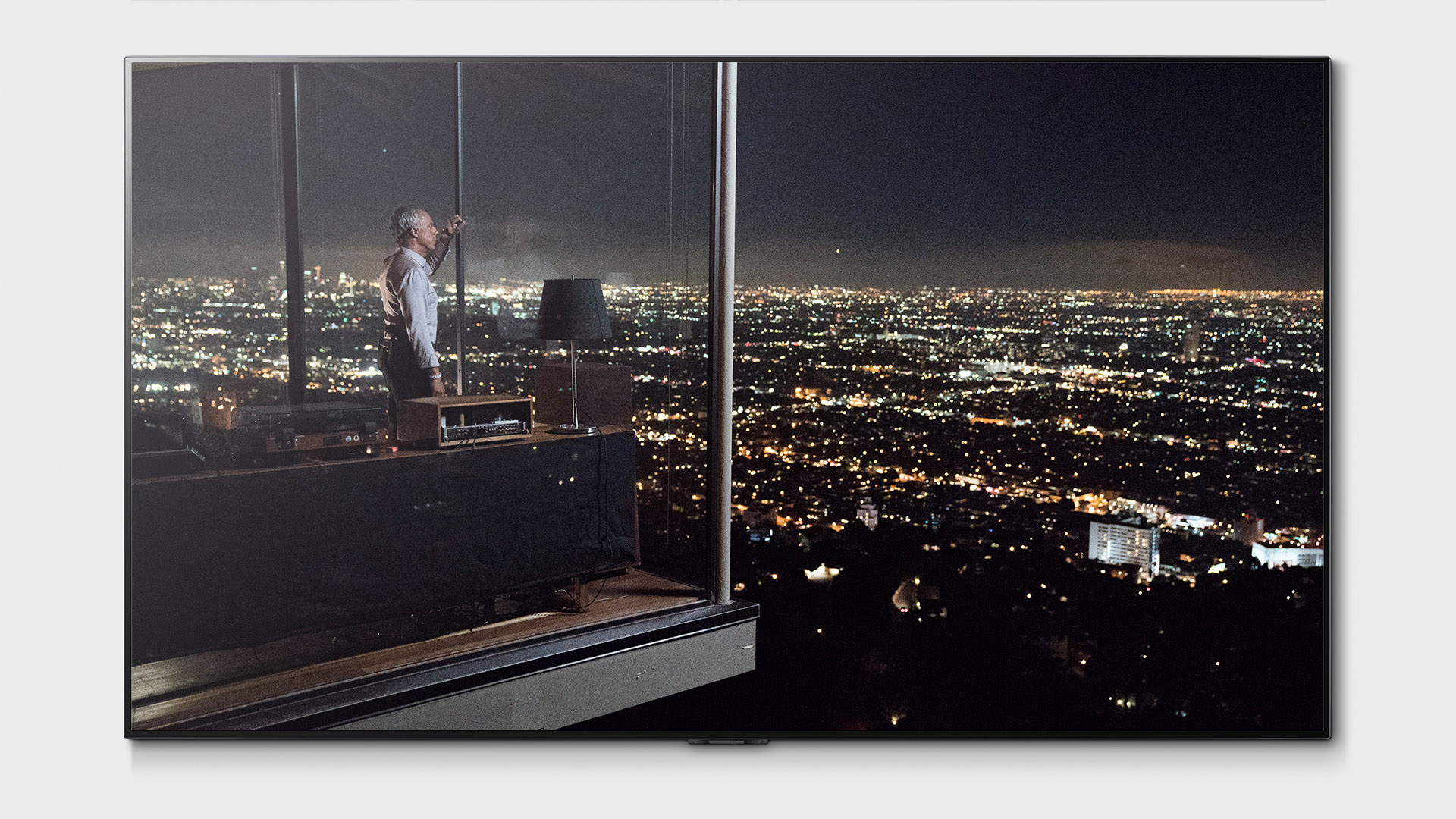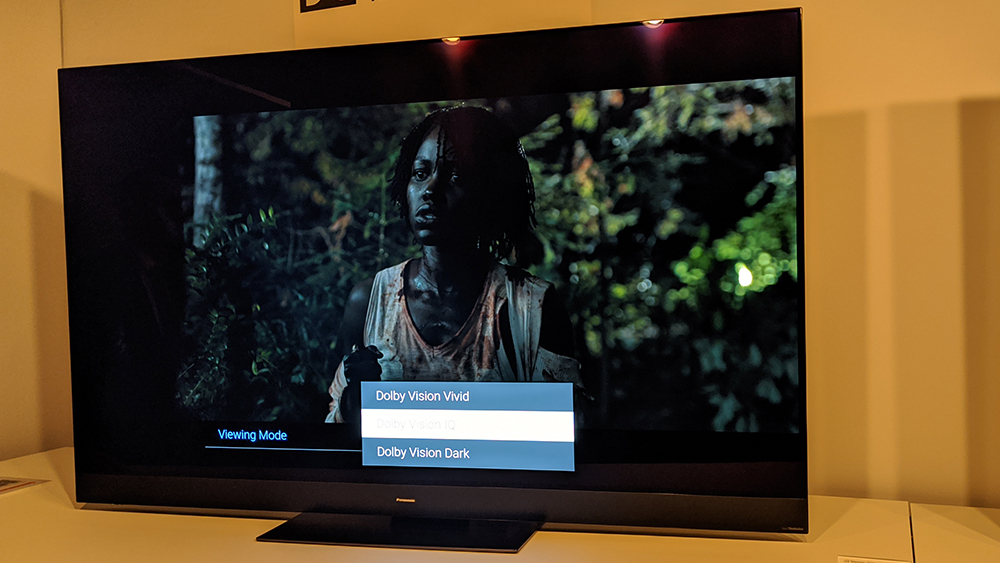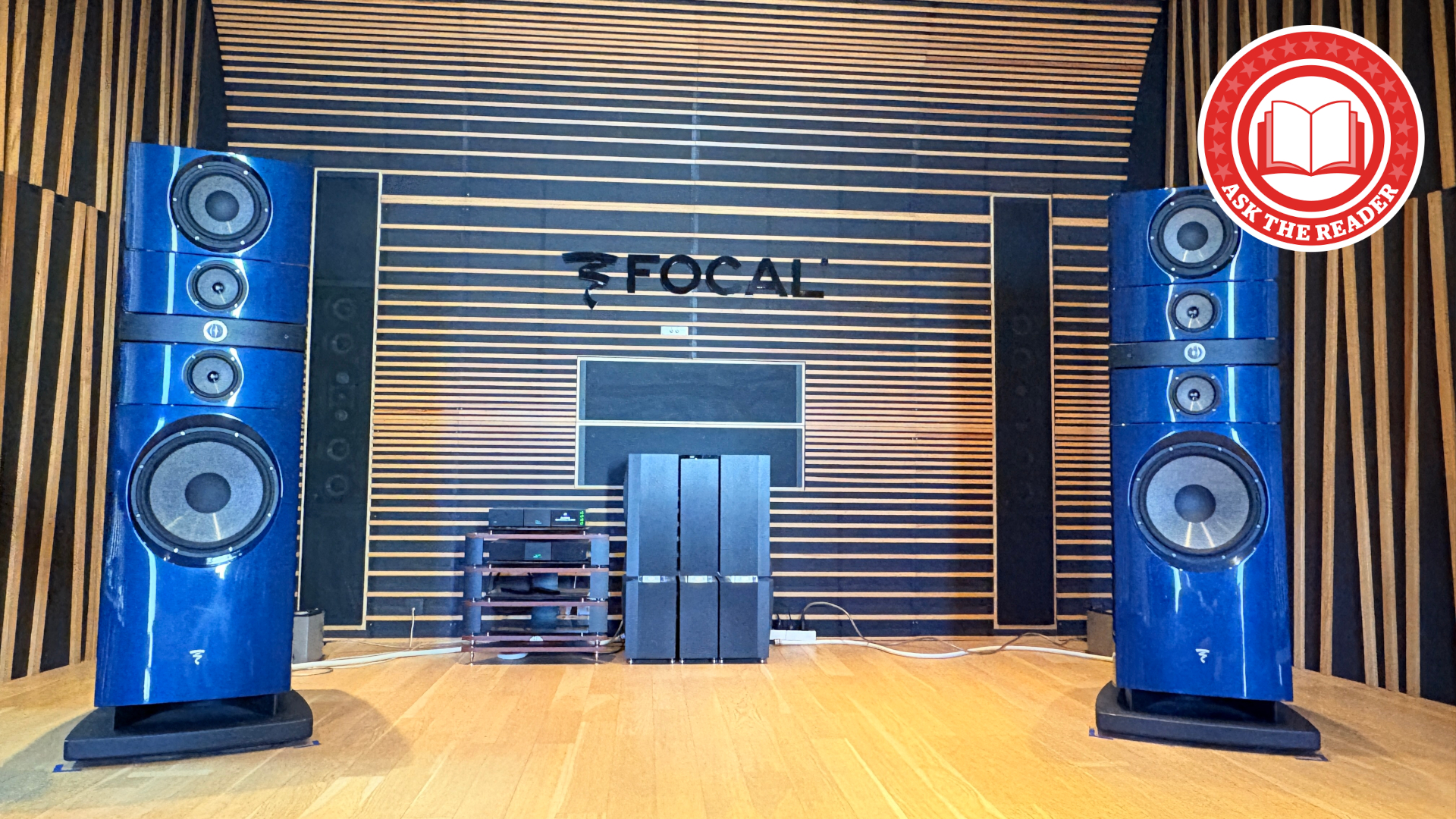Dolby Vision IQ: everything you need to know
Dolby Vision IQ promises the best picture in all conditions

Dolby Vision IQ aims to solve a problem with which we're probably all familiar. How many times have you watched a TV drama and found it was too dark for you to make out all the details? The Game of Thrones finale was marred for many by being too gloomy for viewers to see what was going on, while Netflix's Ozark has also come under fire for leaving far too much to the imagination. And they're not alone.
So why is so much new TV so dark? In part, because filmmakers are making the most of the expanded contrast that HDR (High Dynamic Range) allows, grading content with the dark depth they see fit. However, that grading often assumes that the content is being watched in a pitch black room. Add even a little bit of ambient lighting and a lot of dark detail can get lost. Simply turning up the screen's brightness may appear to improve things but in reality you condense the contrast and lose dark depth – even on the latest OLED TVs.
Dolby Vision IQ, which launched in 2020 and is steadily becoming more widespread, aims to address this issue for Dolby Vision HDR content.
What is Dolby Vision IQ?
"Beyond HDR" is how we heard Dolby Vision IQ being described when the technology was launched at CES 2020.
It's essentially an updated version of Dolby Vision, one of a number of HDR formats alongside HDR10, HDR10+ and HLG (Hybrid Log Gamma). It's designed to optimise Dolby Vision content on your TV according to the brightness of the room.
To do this, Dolby Vision IQ uses the dynamic metadata from Dolby Vision, as well as light sensors inside your TV, to dynamically adjust the HDR picture based on the content and ambient light conditions in your room.
If you switch from bright live sport to a darker TV show, the TV will adjust accordingly for the optimum picture. The idea is that you don't have to do anything – the picture will simply look correct regardless of how much light is in the room.
The latest hi-fi, home cinema and tech news, reviews, buying advice and deals, direct to your inbox.
Which TVs support Dolby Vision IQ?

LG and Panasonic were the first TV manufacturers to board the Dolby Vision IQ train, with Panasonic offering the feature on all of its 2020 OLED models and LG including it with all of its 2020 OLEDs and a number of its Nanocell and LCD models.
Both brands will continue to support Dolby Vision IQ in 2021. Panasonic has confirmed that its flagship JZ2000 model will have it and we'd expect its other 2021 OLEDs to follow suit when they're announced. LG, meanwhile, has confirmed that Dolby Vision IQ will be available across a large portion of its TV lineup again in 2021.
TCL recently announced its first Dolby Vision IQ TV, too – the C825 Mini-LED model.
Interestingly, while Sony and Philips both support Dolby Vision across many of their TVs, neither brand has so far launched or even announced a Dolby Vision IQ model. Both claim that their own ambient light sensors work with Dolby Vision content to create a similar effect, but we suspect that they will eventually adopt the official format, perhaps on models that launch in the second half of 2021 or start of 2022.
Less surprising is that Samsung doesn't offer any Dolby Vision IQ TVs because it still doesn't support even standard Dolby Vision. Instead, the company pushes its own HDR10+ format, which now has a rival to Dolby Vision IQ in the form of HDR10+ Adaptive.
In terms of content, any Dolby Vision movie or TV show can be given the IQ treatment – it's not a separate format in that regard.
Does Dolby Vision IQ actually work?

Now, a TV's light sensor being used to affect picture performance is nothing new. For years TV manufacturers have been using this technique to produce optional 'eco' (or similar) modes that work to adjust picture performance according to room conditions. And, in truth, we often recommend turning it off, finding that it detrimentally affects picture quality, usually by dulling the image.
Dolby Vision IQ is an altogether different and better beast, though. Rather than artificially dulling the picture in a dark room, it brightens it in a light room, and it does so while maintaining naturalness.
Playing It on an LG GX in a bright room, much of the detail in the sewers beneath Derry is lost when Dolby Vision IQ is disabled. At one point, as one of the bullies goes looking for Ben, the entire image is more or less black, with just one point of light on the screen. It's simply impossible to figure out what's going on. Enable Dolby Vision IQ (which on a 2020 LG OLED involves selecting the Dolby Vision Cinema Home preset and switching on AI Brightness) and the tunnel walls and dirty water are revealed, and it becomes clear that the camera is giving us the bully's eye view as he peers through the darkness.
Crucially, in a dim or pitch black room, the image isn't messed about with and you get the standard Dolby Vision picture quality. In short, Dolby Vision IQ delivers on its promise of delivering the correct picture in all lighting conditions, at least when tested on an LG OLED – the core Dolby Vision performance varies from TV to TV more than you might expect, so there's actually no guarantee that all models from all brands will deliver Dolby Vision IQ in exactly the same way. Of course, this is something that we test as part of our reviewing process.
You might think that this is much more about the TV's light sensor and adaptive processing than it is about Dolby Vision, but there's little doubt in our minds that it's the combination of Dolby Vision and the TV's own technologies that's makes Dolby Vision IQ so successful. We wouldn't recommend using LG's AI Brightness feature with standard HDR10 content, for example, as it has a tendency to exaggerate brightness and contrast in a way that doesn't look natural.
In summary, is Dolby Vision IQ any good? Yes, it is, and we'd recommend enabling it if your TV supports it. There's no downside when viewing in optimal, dark conditions, and a considerable upside when watching movies and TV shows with the lights on or curtains open.
MORE:

Becky is a hi-fi, AV and technology journalist, formerly the Managing Editor at What Hi-Fi? and Editor of Australian Hi-Fi and Audio Esoterica magazines. With over twelve years of journalism experience in the hi-fi industry, she has reviewed all manner of audio gear, from budget amplifiers to high-end speakers, and particularly specialises in headphones and head-fi devices.
In her spare time, Becky can often be found running, watching Liverpool FC and horror movies, and hunting for gluten-free cake.
